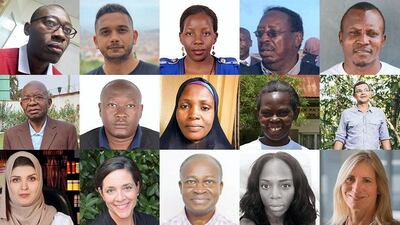Polio, malaria, guinea worm disease and river blindness are just a few of the preventable diseases that no one should have to suffer from in this age of unparalleled medical advancements. In the 21st century, it is a weight on our collective conscience that such devastating illnesses continue to cripple the lives of millions who can be helped.
It was with this in mind that Sheikh Mohamed bin Zayed, Crown Prince of Abu Dhabi and Deputy Supreme Commander of the Armed Forces, joined forces two years ago with some of the leaders in global health to advance their collective commitment to the elimination of these so-called neglected tropical diseases, which affect 1.5 billion people worldwide, many of them in Africa.
The Reaching the Last Mile initiative will add to its momentum tomorrow in Abu Dhabi as 250 global experts, leaders and philanthropists, including Bill Gates, gather for its forum, under the patronage of Sheikh Mohamed.
During the forum attendees will hear of the progress being made to end these diseases and new pledges of support will also be sought to keep up the fight. At 2017's event, for example, Sheikh Mohamed pledged $20 million, a sum matched by the Bill and Melinda Gates Foundation, as part of a $100m fund to finance work towards eliminating river blindness and lymphatic filariasis.
The joint efforts of governments and the private sector only strengthen resources and add to the collective will to enact change. They also make it more feasible to achieve far-reaching, ambitious goals. Take the collaborative battle to completely eradicate guinea worm disease, spread by infected drinking water and affecting the joints, and polio, which can lead to paralysis and death.
Since 1986, the Carter Centre has pioneered the campaign to wipe out guinea worm disease from the planet. In 1990, the UAE’s Founding Father Sheikh Zayed contributed $5.77 million to its efforts and helped prevent an estimated 80 million cases of the disease.
A lot can happen when resources and capacities such as those of the UAE are harnessed to tackle seemingly insurmountable challenges. Polio, for example, has long proliferated in countries riven by conflict. But while it is yet to be wiped out, the progress made towards eradicating it worldwide indicates what is possible when there is will and determination. From 1998, when polio was present in 125 countries, it now exists in only three – Pakistan, Afghanistan and Nigeria. But there is no room for complacency as the example of polio shows, with an uptick in reported cases in Pakistan this year compared to last.
At the forum, 15 health workers from around the world will be awarded for their tireless efforts in beating disease, often at risk to their own lives.
These unsung heroes remind us of the importance of taking a long-term view in fighting for a world in which every single person is guaranteed to live a healthy, disease-free life.
It is at the meeting point of expertise, funds, resources and education that these diseases can become a thing of the past.

